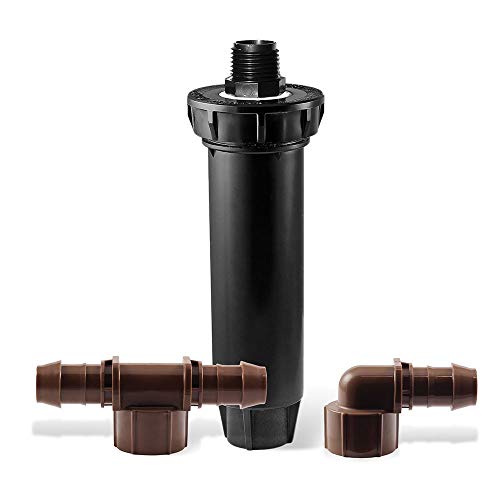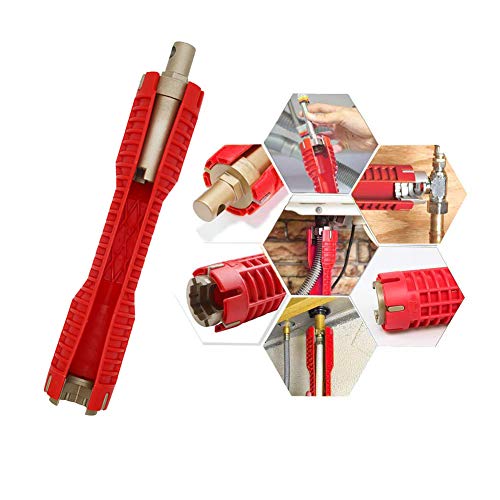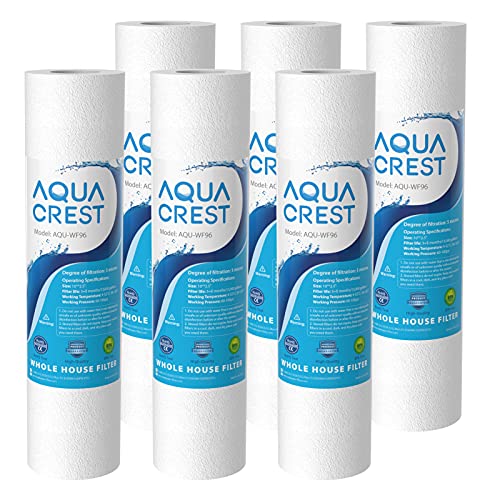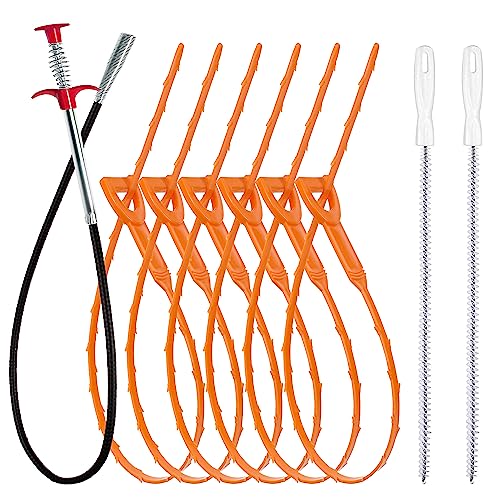My neighbor is having problems with their hardwood floors. They are coming loose in several places and some are warping. This has happened over the last few years. I told them there was a possibility the floor installer did not seal their slab before the engineered hardwood was glued down. They had a hydrostatic leak test done and it showed there was a leak in the drain pipes under the slab. I spoke to a friend who is a very experienced plumber. He said that yes the drain pipes are leaking (old cast iron) and this is very common for old cast iron pipes. He also said since they have no smells and no backups at all that the drain pipes leaking could continue to leak for many more years without causing issues and he recommended not doing anything at this time. He also does not believe that without a blockage causing the water to rise to the top of the slab that the floor problem was related to this leak. Sound reasonable??
You are using an out of date browser. It may not display this or other websites correctly.
You should upgrade or use an alternative browser.
You should upgrade or use an alternative browser.
Sewer leak under the slab
- Thread starter noseider
- Start date

Help Support Plumbing Forums:
This site may earn a commission from merchant affiliate
links, including eBay, Amazon, and others.
plumb_bob_square_pants
Well-Known Member
That sounds reasonable to me. Is it possible that the slab itself is settling and causing the floor problem?
That sounds reasonable to me. Is it possible that the slab itself is settling and causing the floor problem?
I don't think so. The way some of the boards curled up and warped would need to be from moisture.
He believes that the drainpipe can continue to leak without causing any issues? Well obviously it's causing issues if the floor is buckling because of the moisture caused by the leak, concrete is porous it will absorb water, all because there's no blockage doesn't mean the water won't wick the concrete to the top of the floor. If they want hardwood floors they better fix that leak.

$23.99 ($12.00 / Count)
$26.99 ($13.50 / Count)
AQUA CREST FXHSC Whole House Water Filter, Replacement for GE® FXHSC, GXWH40L, GXWH35F, American Plumber W50PEHD, W10-PR, Culligan® R50-BBSA, 5 Micron 10" x 4.5", High Flow Sediment Filters, Pack of 2
Water Purity Expert

$11.96 ($5.98 / Count)
$12.99 ($6.50 / Count)
GE FXWTC Whole Home System Replacement Filter Set, Pack of 2 - NSF Certified: Reduces Chlorine, Sediment, Rust & Other Impurities - Replace Every 3 Months for Best Results (replaces 910163)
Amazon.com
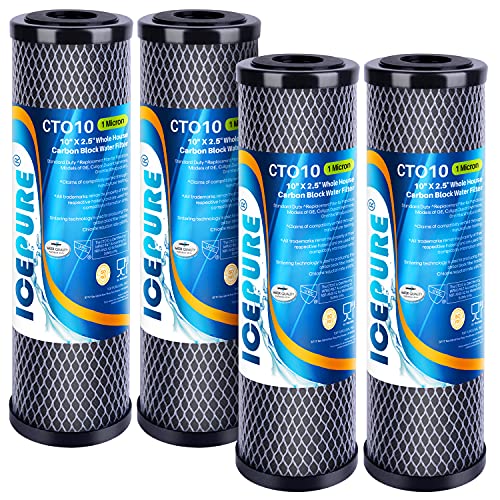
$29.99 ($7.50 / Count)
$39.86 ($9.96 / Count)
ICEPURE 1 Micron 2.5" x 10" Whole House CTO Carbon Sediment Water Filter Cartridge Compatible with DuPont WFPFC8002, WFPFC9001, SCWH-5, WHCF-WHWC, WHCF-WHWC, FXWTC, CBC-10, RO Unit, Pack of 4
ICEPURE Store

$31.99 ($10.66 / Count)
$35.86 ($11.95 / Count)
Waterdrop AP810 Whole House Water Filter, Replacement for 3M® Aqua-Pure® AP810, AP801, AP811, Whirlpool® WHKF-GD25BB, WHKF-DWHBB, 5 Micron, 10" x 4.5", Well & Tap Water Filter, Pack of 3
WaterdropDirect

$26.45
$32.15
RIDGID 57003 EZ Change Plumbing Wrench Faucet Installation and Removal Tool
Amazon.com

$31.99 ($16.00 / Count)
$39.99 ($20.00 / Count)
PUREPLUS 5 Micron 10" x 4.5" Whole House Sediment and Carbon Water Filter Replacement Cartridge for GE FXHTC, GXWH40L, GXWH35F, GNWH38S, Culligan RFC-BBSA, WRC25HD, PP10BB-CC, Pentek RFC-BB, 2Pack
PUREPLUS FILTERS

$32.98 ($5.50 / Count)
Membrane Solutions 5 Micron 10"x2.5" String Wound Whole House Water Filter Replacement Cartridge Universal Sediment Filters for Well Water - 6 Pack
Membrane Solutions Corp

$35.99 ($12.00 / Count)
$40.78 ($13.59 / Count)
AQUA CREST FXHTC Water Filter Whole House Water Filter, Well Water Filter Replacement for GE® FXHTC, GXWH40L, American Plumber W10-PR, Culligan® RFC-BBSA, W10-BC, Carbon Filters, 5 Micron, Pack of 3
Water Purity Expert
plumb_bob_square_pants
Well-Known Member
Did they really put down a floor without a vapor barrier? Sounds like it was an incorrect install on the floor to begin with. The only way that cast iron is going to be a real problem is if it gets backed up. Then it would really leak. Where there's going to be some very mild sepage on an old cast iron system I think the real issue is that there is no vapor barrier between the hardwood floor and the subfloor. If there is no Vapor Barrier on the floor then you could get moisture from other areas other than the concrete. Walls breathe and exhale with moisture and humidity depending on the climate . older houses are less likely to have vapor barriers on the exterior walls.
Did they really put down a floor without a vapor barrier? Sounds like it was an incorrect install on the floor to begin with. The only way that cast iron is going to be a real problem is if it gets backed up. Then it would really leak. Where there's going to be some very mild sepage on an old cast iron system I think the real issue is that there is no vapor barrier between the hardwood floor and the subfloor. If there is no Vapor Barrier on the floor then you could get moisture from other areas other than the concrete. Walls breathe and exhale with moisture and humidity depending on the climate . older houses are less likely to have vapor barriers on the exterior walls.
Unfortunately we don't have any info from the installer if the slab was sealed or not before they glued it down. It's not on the paperwork.
He believes that the drainpipe can continue to leak without causing any issues? Well obviously it's causing issues if the floor is buckling because of the moisture caused by the leak, concrete is porous it will absorb water, all because there's no blockage doesn't mean the water won't wick the concrete to the top of the floor. If they want hardwood floors they better fix that leak.
Yes that's what he believes. He has 30 plus years in the plumbing business. Owns a very large company (has many crews) that works on both residential and commercial. Also owns a plumbing supply company. A real success story. I trust his opinion but I wanted to be able to show my neighbors his opinion was supported by others in the industry who were not just trying to sell them a reroute job for 10-25K. It's hard to find non biased info on the internet about these issues since all the articles are written by plumbing companies trying to sell their services. Yes I know water wicks. I own a roofing company and we do construction. I was just now sure how much DRAIN water leaking not under pressure would rise to the top of the slab without a blockage and cause serious wicking issues.
plumb_bob_square_pants
Well-Known Member
If there are a lot of joints leaking then it can cause an issue. If there are joints blown out then that is a major issue. I'm more concerned about the hydrostatic test. How much pressure did he put on the drains. I would be more concerned about doing damage to already weak joints by putting them under pressure. I could see doing a leak check but not a hydrostatic. What is someone else thinking about that. I would think it wouldn't be a wise idea to hydrostaticly test old cast iron drains.
My opinion get someone to come in and scope out the drain and see how big the crack is if it were me now this is only my opinion I would replace the pipe. A drainage pipe that's leaking sewage underneath my house doesn't seem like a good thing to me even if it is buried in a slab. Once again my opinion
If there are a lot of joints leaking then it can cause an issue. If there are joints blown out then that is a major issue. I'm more concerned about the hydrostatic test. How much pressure did he put on the drains. I would be more concerned about doing damage to already weak joints by putting them under pressure. I could see doing a leak check but not a hydrostatic. What is someone else thinking about that. I would think it wouldn't be a wise idea to hydrostaticly test old cast iron drains.
I was not there for the test but I believe the leak detection company inserted a test plug in the cleanout and filled the drain with water to within 2" of the finished floor. The leak was immediate and within 10 minutes there was a 12" drop.
- Joined
- Sep 28, 2014
- Messages
- 8,578
- Reaction score
- 2,977
no.it is not ok or friggen common, who ever told you that is not a plumber.
a plumber will tell you that the sewage can cause health problems to your family, ecoli, botulisem, and other big ass words i can not spell or pronounce
the curling of the wood IS a big deal, because the crap water is soaking into the wood and the germs are in the water
they dry out and become air born.
if you have children , toddlers or old people i suggest you remove them from the home
a leaking sewer is an uhsanitary un safe condition A PLUMBER would know this
not only is it unsafe and unsanitary, water leaking under the foundation will erode / wash out the dirt from under the slab.
i went to a house in Orlando, we hit the floor with a sledge hammer to bust a hole, to fix a pipe
a hole 4'x5' x 2' deep was under the house that had washed the dirt away
a plumber will tell you that the sewage can cause health problems to your family, ecoli, botulisem, and other big ass words i can not spell or pronounce
the curling of the wood IS a big deal, because the crap water is soaking into the wood and the germs are in the water
they dry out and become air born.
if you have children , toddlers or old people i suggest you remove them from the home
a leaking sewer is an uhsanitary un safe condition A PLUMBER would know this
not only is it unsafe and unsanitary, water leaking under the foundation will erode / wash out the dirt from under the slab.
i went to a house in Orlando, we hit the floor with a sledge hammer to bust a hole, to fix a pipe
a hole 4'x5' x 2' deep was under the house that had washed the dirt away
Last edited:
- Joined
- Sep 28, 2014
- Messages
- 8,578
- Reaction score
- 2,977
Yes that's what he believes. He has 30 plus years in the plumbing business. Owns a very large company (has many crews) that works on both residential and commercial. Also owns a plumbing supply company. A real success story. I trust his opinion but I wanted to be able to show my neighbors his opinion was supported by others in the industry who were not just trying to sell them a reroute job for 10-25K. It's hard to find non biased info on the internet about these issues since all the articles are written by plumbing companies trying to sell their services. Yes I know water wicks. I own a roofing company and we do construction. I was just now sure how much DRAIN water leaking not under pressure would rise to the top of the slab without a blockage and cause serious wicking issues.
tell your 30 year plumber i said just because he has been doing something wrong for 30 years does not make it right
thats like you saying it is ok to 2 nail your shingles because you have been doing it that way for 30 years....
tell your 30 year plumber i said just because he has been doing something wrong for 30 years does not make it right
thats like you saying it is ok to 2 nail your shingles because you have been doing it that way for 30 years....
Well I most likely won't pass this information on to my plumber friend but I do appreciate your advise. It's great to hear other opinions on this and hopefully this thread will be useful to others who research the subject. We install 6 nails by hand on all our shingle roofs.















